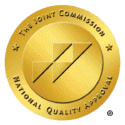
Physical Signs of Alcoholism
Untreated alcoholism can have a profound negative impact on how a person looks, feels, behaves, and interacts with others. When you are aware of the social, psychological, and physical signs of alcoholism, you will be better prepared to identify the problem and seek appropriate treatment.
What is Alcoholism?
Alcoholism is a chronic, progressive disease that is characterized by an overwhelming compulsion to drink. The clinical term for alcoholism is alcohol use disorder. It is also often referred to as alcohol addiction.
Alcoholism and other chronic conditions cannot be cured. However, with appropriate professional treatment, a person can learn to manage the urges, compulsions, and other symptoms of the disorder. When they get the type and level of care they need, they can end their use of this dangerous drug and achieve successful, long-term recovery from alcohol addiction.
Alcoholism is one of the most common forms of addiction. According to the National Institute on Alcohol Abuse and Alcoholism (NIAAA), more than 14.5 million Americans ages 12 and over met the criteria for a diagnosis of alcohol addiction. This includes 9 million boys and men (or 6.8% of people in that demographic group) and 5.5 girls and women (or 3.9% of the female population above age 11.)
It is important to understand that alcoholism is a legitimate mental health disorder. It is not simply evidence of low character or the result of poor self-discipline. A person who becomes addicted to alcohol loses the ability to control their thoughts and behaviors. This can include being unable to limit how much and how often they drink.
Symptoms
As established in the fifth edition of the Diagnostic and Statistical Manual of Mental Disorders, the criteria for an accurate diagnosis of alcohol use disorder include symptoms such as the following:
- Experiencing powerful cravings to use alcohol
- Devoting a considerable amount of time to drinking alcohol and recovering from its effects
- Being unable to stop drinking once you begin
- Failing to meet your responsibilities in school, at work, or in other important areas of your life because of your drinking
- Continuing to drink even after being harmed physically, psychologically, or socially as a result of previous alcohol use
- No longer participating in hobbies or other previously important activities because of your drinking
- Abusing alcohol in ways that are clearly hazardous, such as combining alcohol with other drugs or drinking immediately before driving
- Wanting to quit drinking, but being unable to do so

Physical Signs of Alcoholism
Untreated alcoholism can have a devastating impact on a person’s mind and body. Though different people can be affected in different ways, certain physical signs of alcoholism are common.
Two classic physical signs of alcoholism are tolerance and withdrawal:
- Tolerance means that, over time, a person will not be affected as strongly by alcohol as they previously were. Thus, they will have to consume larger amounts of this drug to achieve the intoxicating effects that they used to experience after just a few drinks.
- Withdrawal refers to the painful ways a person’s body may react when they abruptly try to stop drinking. In addition to being extremely uncomfortable, severe cases of alcohol withdrawal can even be life-threatening.
Here are a few other physical signs of alcoholism:
- Significant unintentional weight gain or loss
- Reddened skin near the nose and cheeks
- Bloated appearance in the face
- Yellow or grey skin
- Yellowing of the sclera (the white part of the eye outside the pupil and iris)
- Bloodshot eyes
- Impaired coordination
- Excessive perspiration
- Tics, tremors, or other signs of shakiness
- Gastrointestinal problems
- Frequent headaches
- Numbness in the feet and hands
Additional Signs of Alcoholism
In addition to the physical signs of alcoholism that we listed in the previous section, this disease can also cause a person to exhibit a range of psychological and behavioral signs, such as these:
- Needing alcohol to wake up in the morning or get to sleep at night
- Being unable to feel joy or cope with disappointment without using alcohol
- Lying or being otherwise deceptive about their whereabouts and activities
- Neglecting their personal appearance
- Acting with uncharacteristic anger, violence, or recklessness
- Demonstrating dramatic changes in mood and energy level
- Withdrawing from family and friends
- Struggling to perform to expectation at work or in school
- Arguing with loved ones about the amount and frequency of their alcohol use
A person who exhibits any psychological, behavioral, or physical signs of alcoholism should be brought to the attention of a qualified healthcare provider. The path to improved health begins with a thorough assessment, an accurate diagnosis, and a recommendation for appropriate treatment.
Begin Treating Alcoholism at Sanctuary Treatment Center
If the compulsion to abuse alcohol has undermined your ability to live a healthy and satisfying lifestyle, please know this: You are not alone, help is available, and treatment works.
Sanctuary Treatment Center offers comprehensive, personalized care to help adults end their alcohol use and build a foundation for a healthier, alcohol-free future. Alcohol treatment options at our center in Los Angeles, California, include detoxification, inpatient treatment, and outpatient rehab. At each level of care, compassionate professionals provide customized services in a respectful and supportive manner.
To learn more about our services or to schedule a free assessment, please visit our Admissions page or contact us directly at your earliest convenience.


